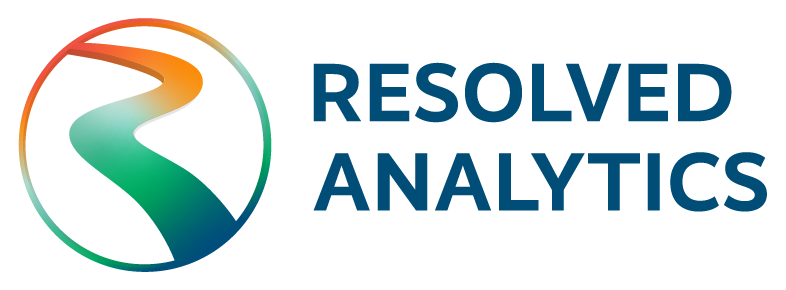Operating a CFD Consultancy with Resolved Analytics
Robin Knowles of CFD Engine recently interviewed us for his Podcast Talking CFD. Robin is a CFD consultant based in the UK specializing in aerodynamics and support for OpenFOAM. In 2016, Robin created Talking CFD to share information and stories from one engineer to another about owning and operating an engineering consultancy.
Robin asked us to share our story, so below is a brief recap of the interview. You can also listen to the full interview about how we started our engineering consultancy Resolved Analytics along with some advice to others seeking a similar path.
Summary of the Conversation
About Our CFD Consultancy Resolved Analytics
At the time of publication, Resolved Analytics was a pure CFD consultancy without a product to sell or an exclusive relationship with any software, as different clients may have different needs. What we do is continually evolving. As a consultancy, we are whatever our clients need us to be as related to engineering simulations. Our consultants provide more than just CFD simulations. We can look at a result and know what to do with it.
Our simulation services offer many customers peace of mind that their designs will work as predicted, whether it be improvement of existing designs or validation of new products. Sometimes we help our customers develop their own internal simulations program or systems engineering by helping them choose a software that fits their specific needs, getting verification and validation methods in place, creating quality control, and deciding what simulation techniques to use. Recently, we’ve been seeing a lot of technology start-ups who need access to faster simulations or who seek experts to guide them through the process of creating an internal simulation program.
Resolved Analytics was founded out of a desire to make CFD more practical and accessible. Both managing partners and lead consultants got their start in air pollution control and power generation. We recognized that CFD was getting to the point where more and more people should be using it but weren’t. We made it our mission to make CFD more accessible to smaller and medium sized companies by not only providing them with simulations, but by helping them interpret and apply the results. This is what sets us apart from many other CFD consultants.
Advice For Those Pursuing Consultancy
Planning: Planning is key. Spend time planning and mentally preparing. Do you feel confident in your service or product? Create a business plan. Do market research and contact potential customers. Know what problem you are trying to solve and what people are willing to pay for your solution. Don’t try to provide a solution to a problem that doesn’t exist.
Workload: Know your limits. You don’t want to take more work than you can handle and risk undermining the accuracy of any of your problems if you find yourself in a time crunch. Have a backup plan for when you are overloaded. Previous experience in CFD means I have a group of experienced CFD engineers that can help with overflow as independent contractors. Make sure you have some of these relationships with trusted partners.
Risk: Owning and operating your own business is a lot of effort and probably doesn’t suit all personality types. Ask yourself if you are more suited to be an employee or an owner. How do you feel about financial security? Not all start-ups survive. If your company fails or if your company succeeds, what does that mean for your family or your financial security? Is that a risk you are willing to take?
Credibility: There is also a lot to be said for having credibility these days. It’s easier than ever to start a company with readily available tools for marketing, accounting, etc. 15 years ago, not a lot of people could do CFD, and all it took to get simulation jobs was to tell someone you could do it. Today, there is a credibility hurdle. Companies need to be confident in the results you provide, and experience is the number one way you show your credibility. If you want to start a consultancy right out of grad school, and you have the work ethic and smarts to do it, go for it. However, a long list of contacts who can connect you with people who need your service is also important, and that will be hard to do right out of school.
Marketing: For us, outbound marketing accounts for 75% of our business. Go out and find the right people to do business with. It’s about finding out what someone needs, talking to them, hearing their problem, and then seeing if you can be helpful in some way.
Focus: Think of your customer before yourself. The more focus you give out to other people and the less you focus on yourself, the more successful your company will be.


